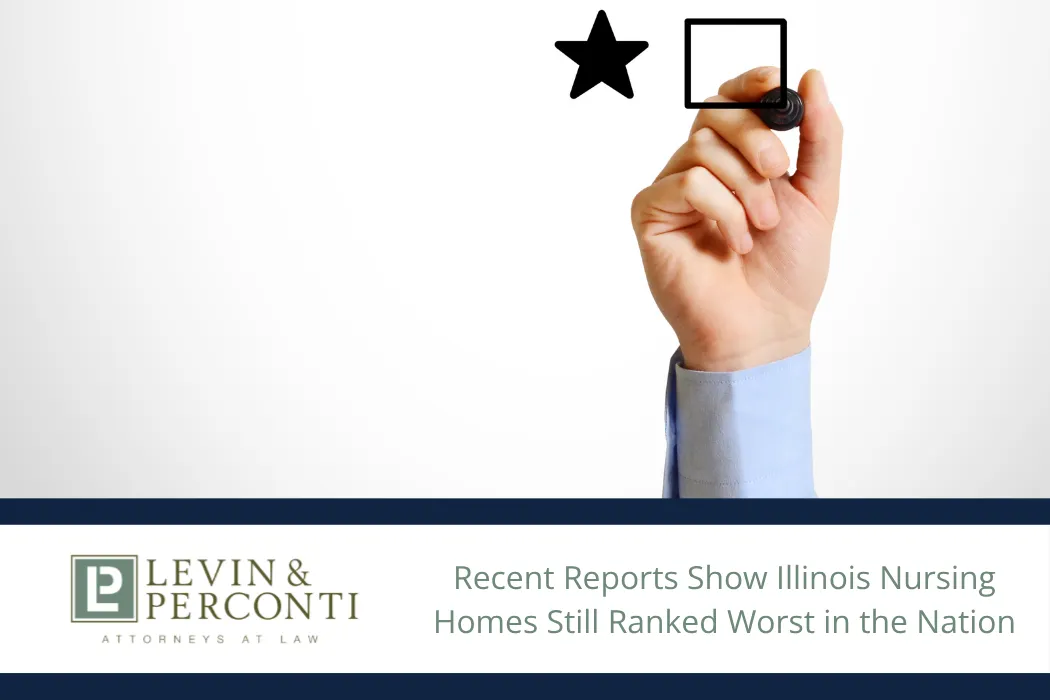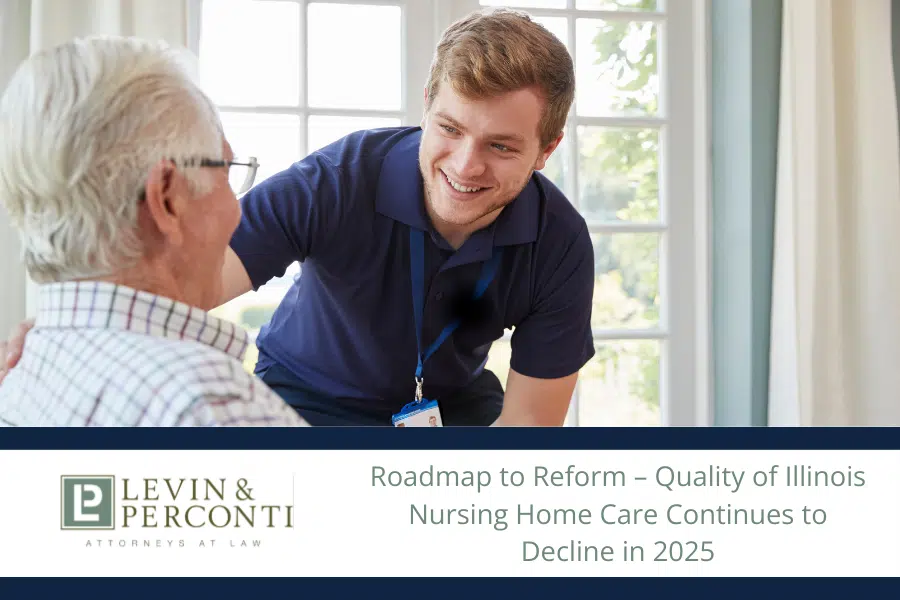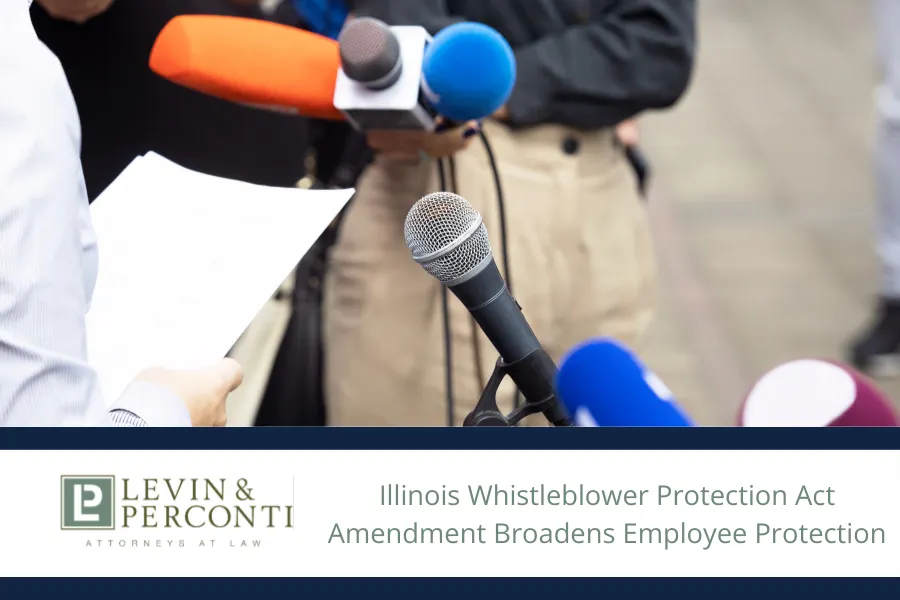
Content Reviewed by:
Michael F. Bonamarte, IV
Content Reviewed by: Michael F. Bonamarte, IV
Accordion Content
Since 2005, Michael Bonamarte IV has been a passionate advocate for victims of negligent conduct, corporate malfeasance, and medical malpractice. He has won numerous awards and recognitions, including Best Lawyers in America and Super Lawyers’ Rising Star. He has presented for the American Association for Justice, the AAJ Nursing Home Litigation Group, the John Marshall Law School, and numerous other legal associations. He regularly lectures at Chicago-area aging organizations about nursing home abuse. His writings have been published by the American Bar Association, the Chicago Daily Bulletin, and numerous other prestigious publications.
A recent investigation has once again confirmed what many families and advocates have long known: despite a major funding overhaul in 2022, Illinois nursing homes continue to rank among the worst in the country. Too many long-term care residents are still living in unsafe conditions due to persistent understaffing, poor oversight, and a system that prioritizes profit over people.
Illinois Still Ranks Near the Bottom In The Nation
Illinois currently ranks 47th in the nation for nursing home quality. Although the state increased funding by over $500 million annually through a 2022 reform package, the reimbursement formula is still based on 2017 costs, leaving facilities struggling to meet today’s expenses. While lawmakers touted the funding increase as a step toward better care, conditions inside many homes remain dire.
Poor Ratings Reflect Deeper Problems in Illinois Nursing Homes
Federal data shows that nearly 250 Illinois nursing homes have a one-star rating—the lowest possible under the federal five-star system. In contrast, only about 60 homes earned five stars. These ratings reflect staffing shortages, repeated safety violations, and poor health outcomes for residents. While state officials say staffing levels have increased in some facilities, the gains have not been enough to improve quality across the board.
In some cases, corporate operators have closed low-performing homes and transferred residents to better-rated ones, only to later shut those facilities down as well. Families report frequent moves, skipped care, and unclean environments. The impact on residents, especially those with serious medical conditions, is devastating.
Oversight and Accountability Are Still Lacking
Illinois regulators have increased enforcement in recent years. The Department of Public Health reports that the number of assessed nursing home violations grew by 18% from 2022 to 2023 and by 33% from 2023 to 2024. The state also has the authority to impose higher fines on facilities that don’t comply with staffing rules.
But enforcement alone isn’t solving the problem. Industry advocates blame funding shortfalls, but watchdog groups like AARP Illinois argue that’s only part of the story. Corporate ownership structures, limited transparency, and legal loopholes continue to shield bad actors from accountability. Facilities that receive public funding are still allowed to use arbitration clauses and shell companies to avoid litigation and responsibility when residents are harmed.
“We agree with the AARP. Too many Illinois nursing home residents suffer poor care due to systemic failures, greed, and lack of accountability for major offenders. The industry is trying to deprive nursing home residents and their families of their right to due process,” said Michael Bonamarte, managing partner at Levin & Perconti.
History has shown that lawsuits and litigation can drive significant changes in society and business practices by influencing legal precedents, public awareness, and corporate behavior. That’s why the current loopholes allowing nursing homes to avoid litigation and financial responsibility must be addressed by lawmakers. Change will never come unless and until victims can pursue full accountability.”
Michael F. Bonamarte, IV, Managing Partner
The Role of Litigation in Protecting Residents
When Illinois passed the Nursing Home Care Act in 1979, it recognized that government agencies alone cannot protect nursing home residents. The law was designed to empower families to hold negligent facilities accountable through the courts. But today, legal action is becoming more difficult due to aggressive tactics by nursing home operators aimed at avoiding liability.
“When the Illinois Nursing Home Care Act was passed in Illinois in 1979 to protect residents from abuse and neglect, there was an acknowledgment that government cannot police nursing homes on its own and that litigation should play a role in this,” said Margaret Battersby Black, managing partner at Levin & Perconti.
But in recent years, this has become increasingly challenging because of the shameful tactics used by many nursing homes to avoid liability. As a leader in nursing home litigation, our firm is not backing down. We are committed to obtaining justice for our clients and leveling the playing field for nursing home residents and their families who pursue lawsuits.”
Margaret P. Battersby Black, Managing Partner
Levin & Perconti Fights For Justice, Reform, and Respect of Nursing Home Residents
The recent legislative reform for nursing home care was a step in the right direction, but it wasn’t enough. Real change will require:
- Updated reimbursement standards that reflect current costs of care.
- Stronger enforcement of staffing requirements and safety regulations.
- Greater transparency in ownership and financial practices.
- Legal protections that allow families to seek justice when things go wrong.
At Levin & Perconti, we’ve built our reputation on advocating for nursing home residents and their families. We remain committed to fighting for those harmed by nursing home abuse, neglect, and systemic failures and to ensuring that Illinois nursing homes provide the care and dignity every resident deserves.
If your loved one has suffered in a nursing facility, our attorneys are here to help you understand your rights and pursue justice.



